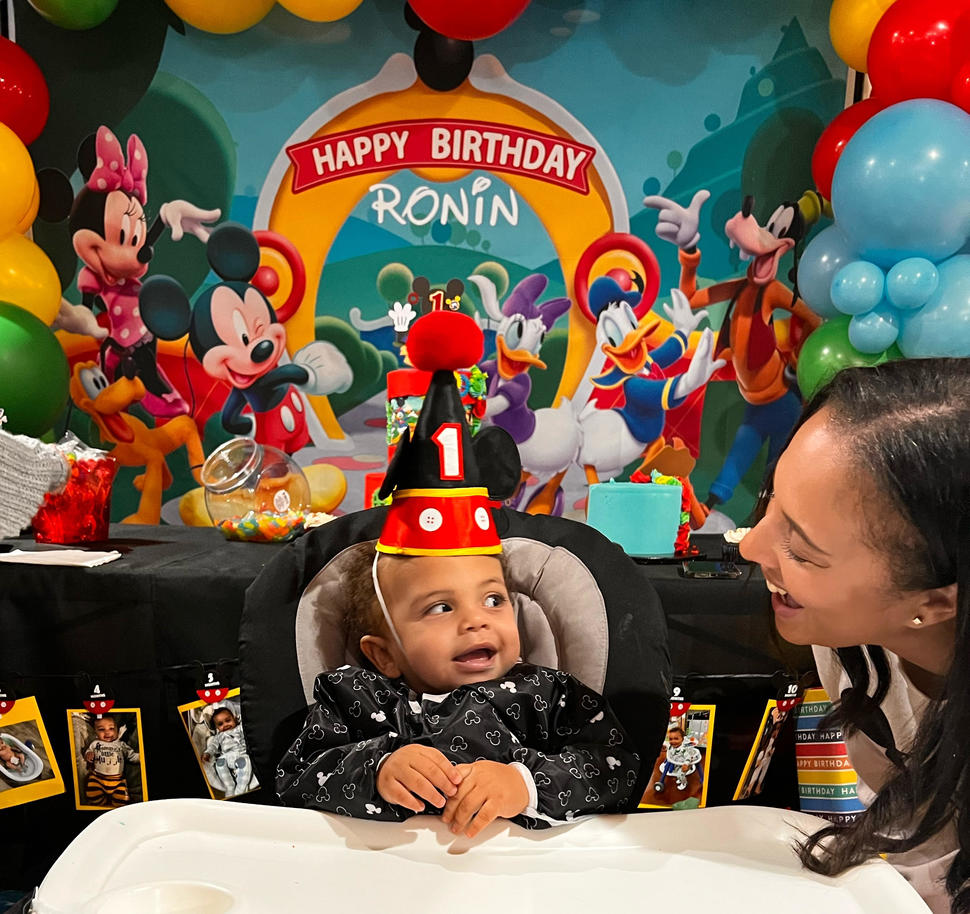Pausing Long-Term Breast Cancer Therapy to Become Pregnant Appears to Be Safe
, by Edward Winstead
Many young women who are diagnosed with early-stage breast cancer ask their doctors about the possibility of becoming pregnant in the future. New results from an international clinical trial may help inform these discussions.
The trial focused on the use of endocrine therapy (hormone therapy), such as tamoxifen. Hormone therapy is typically given for 5 to 10 years to women who have been treated for early-stage breast cancer to help prevent the cancer from coming back.
The study found that women could temporarily stop their hormone therapy for up to 2 years as they tried to conceive without raising the risk of a recurrence in the short term.
Most of the 518 women in the trial became pregnant and delivered a healthy baby during the treatment pause. A total of 365 babies were born during the study, according to results presented at the San Antonio Breast Cancer Symposium (SABCS) on December 8.
“This [study] is great news,” said Carlos Arteaga, M.D., who directs the University of Texas Southwestern Simmons Comprehensive Cancer Center and moderated the SABCS press conference at which the trial results were presented.
The POSITIVE clinical trial included women under age 43 who desired to become pregnant. These women had undergone surgery for early-stage hormone receptor (HR)-positive breast cancer and had received at least 18 months of hormone therapy.
The trial participants will be followed for at least 10 years after study enrollment. This additional follow-up will be needed to assess the recurrence risk over a longer time among women who paused hormone therapy, Dr. Arteaga noted.
For many young women with breast cancer, questions about fertility are of “paramount importance,” according to Ann Partridge, M.D., M.P.H., of the Dana-Farber Cancer Institute, who co-led the trial and presented the results at SABCS.
Women with early-stage HR-positive breast cancer may initially be treated with surgery, radiation, and/or chemotherapy, followed by 5 to 10 years of additional, or adjuvant, hormone therapy.
Hormone therapy slows or stops the growth of HR-positive breast cancers. These treatments block the body’s ability to produce hormones or interfere with the effects of hormones on breast cancer cells.
But many young women are reluctant to receive hormone therapy because the treatments may make it harder for them to conceive, noted Dr. Partridge.
Many successful pregnancies, no increase in cancer returning
The POSITIVE trial, which was conducted on four continents, was the first prospective study to follow women who paused hormone therapy as they attempted to conceive.
“Most of the women had at least one pregnancy” during their treatment pause, Dr. Partridge said, noting that most became pregnant within two years.
She and her colleagues tracked the pregnancy status of 497 women from 20 countries in the trial, which was funded in part by NCI. Of this group, 368 (74.0%) had at least one pregnancy and 317 (63.8%) had at least one live birth.
These rates of conception and childbirth were similar to or higher than rates in the general population, according to Olivia Pagani, M.D., of the International Breast Cancer Study Group, who co-led the trial.
By 3 years after their initial treatment, the cancer had come back in about 9% of participants. That recurrence rate was nearly identical to what was seen among a similar group of premenopausal women participating in a similar study but that did not include a treatment pause.
The trial results will likely help patients, their families, and their doctors feel more comfortable about pursuing a pregnancy, according to Dr. Partridge. She stressed that the approach involves interrupting rather than stopping hormone therapy.
In the trial, at a median follow-up of 3.4 months, about 76% of the women had resumed hormone therapy and 15% had not resumed hormone therapy. About 8% of the women had a recurrence, a new cancer, or had died before they had resumed their hormone therapy.
After completing the study, participants will continue to receive hormone therapy for up to 5 to 10 years. Each woman’s treatment will be determined in consultation with her physician based on her risk of a recurrence.
Celebrating an important birthday
In San Antonio, Dr. Partridge thanked the women who participated in the trial, noting that they did not have to join a research study to pause hormone therapy. “Their participation in the trial was very altruistic,” she said.
Shayla Johnson, who is 40 years old, joined the study with the hope that the results could help other women “feel a little more secure about starting a family.” She was diagnosed with early-stage breast cancer 6 years ago, just as she was planning to start her family.
Her diagnosis led to a double mastectomy and eight rounds of chemotherapy. Johnson eventually became pregnant through in vitro fertilization during a pause in her hormone therapy. Today, she cannot imagine life without her son, Ronin, and wants to share her story.
“You shouldn’t have to choose between a treatment to help save your life and starting a family,” Johnson said, adding that “cancer can be very complicated, especially for young women.”
When Ronin turned a year old this month, the many friends and family who have supported Johnson for the last 6 years attended the party. These people are also Ronin’s biggest fans.
“After all I’ve been through, they think my son is a miracle,” Johnson said. “And everyone wants to be around a miracle.”

